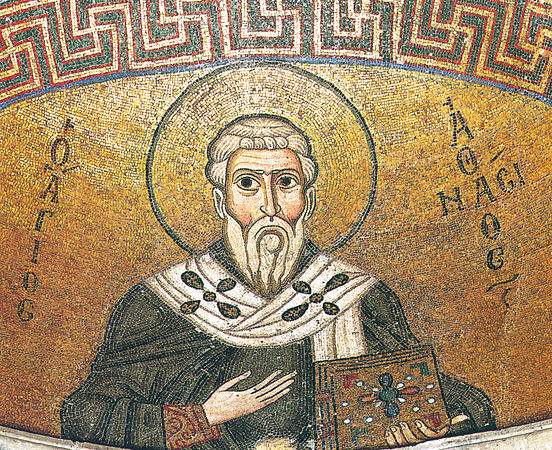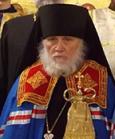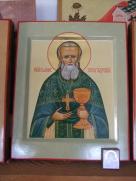Thursday, February 2, 2017
Some characteristics of clergy not to trust…
The lives of saints provide lessons for all aspects of our lives. Therefore we should be reading them daily. Not only do we learn what kinds of trials face Orthodox Christians on their path through life, but we are also educated in the nature and practice of love, and are given examples of how to pray, be obedient, discern falsehood or demonic activity, how to be humble, forgiving, and patient, while strictly maintaining the Orthodox faith in all fullness.

After the 2007 union with Moscow, people of the Russian Orthodox Church Abroad, due to understandable and profound disappointment, have become cautious in trusting clergy. It has been a difficult time for us all. However, it is important for us to continue to learn traditional Orthodoxy, and direct our lives accordingly. A “modern approach” will eventually will lead us away from the Church. For example, we should be aware that the valuable accounts from the lives of saints in fact give hundreds, if not thousands of examples of what kinds of clergymen (and lay people!) not to trust.
For example, in the life of St Athanasius the Great, archbishop of Alexandria (296-373), we read about the heretic Arius:
…spurred on by ambition, he sided at first with Meletios, a schismatic, and then with Archbishop Peter of Alexandria, who ordained him a deacon. He was reconciled with another schismatic, Achillas, who raised him to the presbyterate…
Today, the Church unfortunately sees many “adventurers” among the clergy, who will join one jurisdiction after the other, often due to ambition. This kind of personal-ecclesiastical history is a ‘warning flag’ for us.
At the same time, there exist many laymen and clergy who have turned away from the falsehood of ‘world orthodoxy’ or heterodox faith, and embraced true Orthodoxy. These are distinguished by their humble and consistent work for the Church of Christ, which is often not very spectacular. Arius, on the other hand:
…was not so well versed in understanding Scripture as he was crafty and a vessel of the devil, skilled at instigating scandals…a popular teacher…his teachings began to incite controversy…he made many disciples…his beliefs circulated in the mouths of many….he filled Egypt with tumult and confusion…his ideas we widely accepted…
Moreover, Arius and his followers were great publicists:
…they did not cease, on a daily basis, creating stumbling blocks, with the intention of not only having the saint exiled from his throne, but also from the city, and if possible even to deprive him of life itself…they enlisted whomever they could in Alexandria to defame the bishop…
The righteous very often endure unjust and false slanders. This is a sign to take note of:
…they accused him of crimes…compelling the bishops and priests to hand over a tax…plotting treachery against the Emperor…that Athanasius was avaricious…against the holy archbishop every charge that could be contrived was laid at his door…primarily harshness and violence in dealing with those who took up Ischyras’ case (a man who posed as a priest without ordination, who vacillated between two schismatic groups and the Orthodox church)…reports circulated that Athanasius contracted to have killed [Arsenios, Bishop of Hypsele, who had been bribed to go along with the following plot]…it was alleged that one of the victim’s hands was severed for use in magic ceremonies…this ridiculous rumour was bruited about…threatening, insulting and reviling him, saying, “Magician, swindler, charlatan, hypocrite, mischief-maker!”
The Church of Christ has lived through many confusing moments, when people were unsure what to believe and whom to trust. Let us make these vital decisions with sobriety, based on Scripture, the writings of the Holy Fathers, and the history of the Church, including the lives of the Saints.
Evsevios of Nikomedia and Theognos of Nicaea, filled with notions of their own importance, used all their influence against the advocates of homoousion. On account of the maneuvering and sophistry of Evsevios of Caesarea, many were swayed who went on thinking that they were in accord with the Orthodox view and the Nicene Creed. The substance of the mischievous controversy was, to many, misrepresented and never fully explained.
St Athanasius governed the Church of Alexandria for 46 years. Seventeen of these years, he was exiled from the city, and most his reign passed under the shadow of continuous troubles. But the Church recognises him as one of the greatest saints and confessors of Orthodoxy in Her history.





